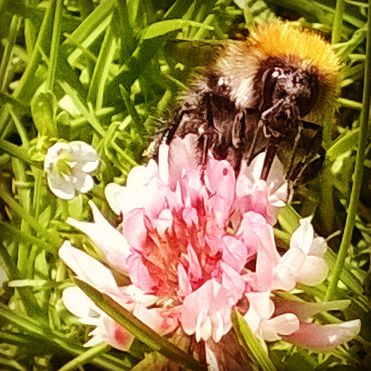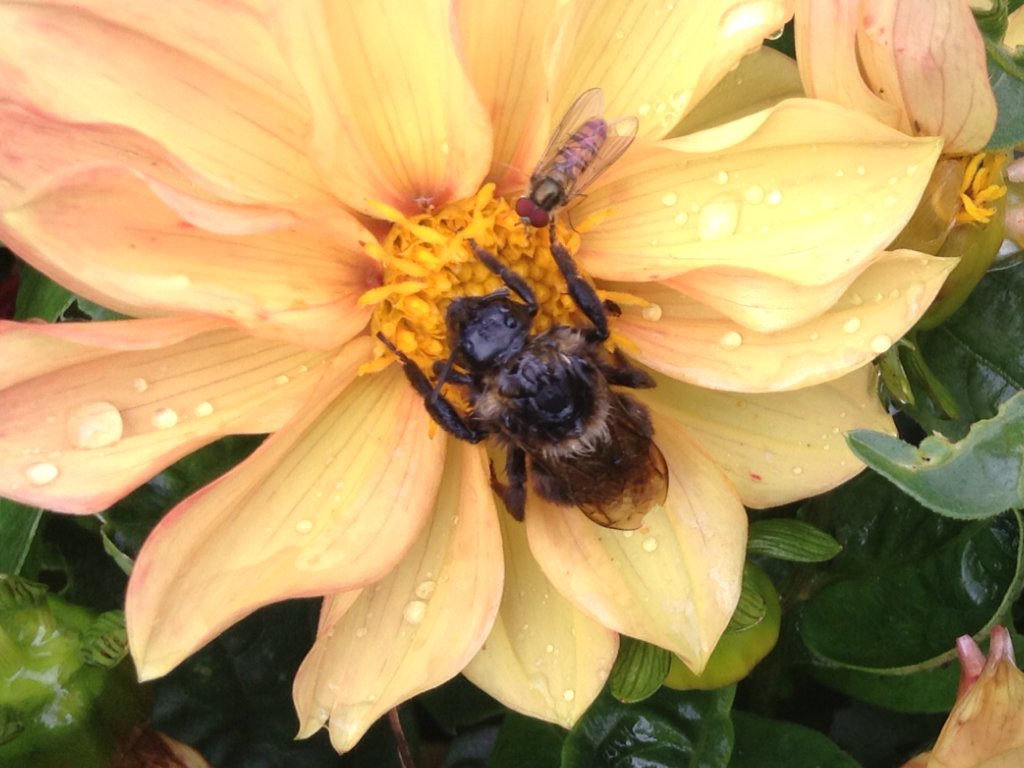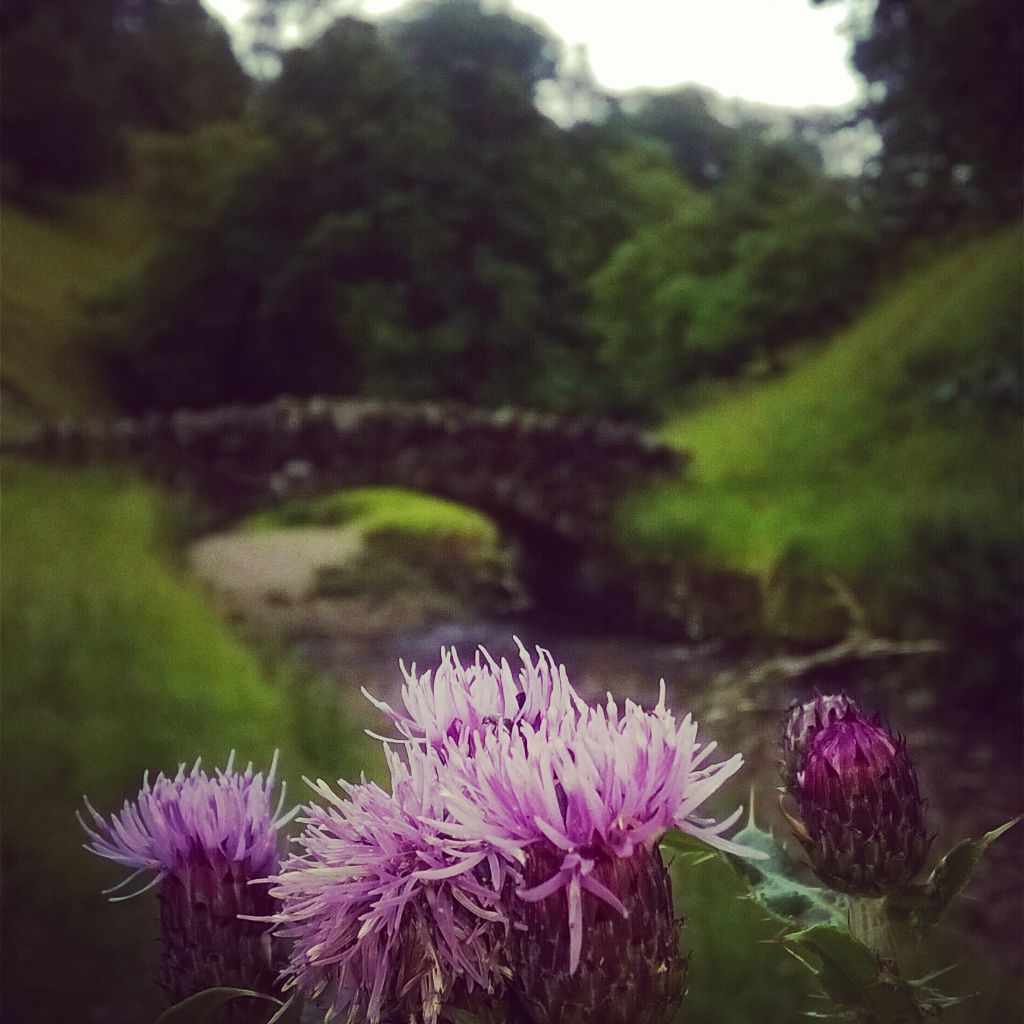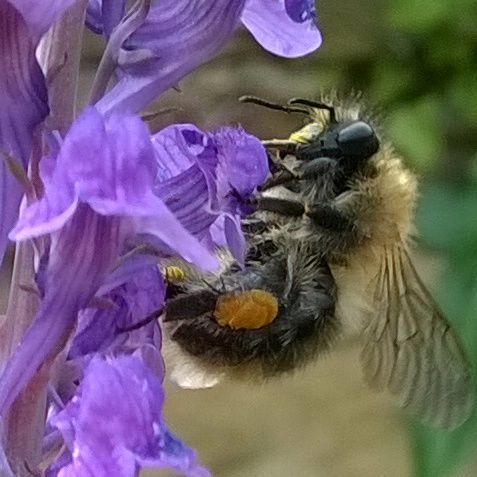31 - Of desolation and consolation, the gift of the bees.
The hermits "lived in small cells, similar to the cells of a beehive, they lived as God's bees, gathering the divine honey of spiritual consolation."
Elijah was one of the desert fathers, thought of as the founding father in spirit of the Carmelite movement. You will find him pottering about in the book of Kings, trying to do what he thinks God wants, sometimes not getting it right and mad at God for being so difficult. He reaches the point of desperation more than once. Eventually he takes himself off to a cave to die, he really can't take any more. But we know, as he did not, when we read that story, that after the storms and the screaming have worked themselves out, a raven will come and drop bread and cheese for him, and he will at last hear the voice of God in the whispering wind.
I wish I could remember hearing that for the first time, not knowing how it would turn out. Not knowing that in another crisis help would come, and he would have someone to whom he could hand on the cloak, that he would not die, but would rise up and blaze his way to heaven in a chariot of fire.
You just have to love him. He was so keen to do right, and so got it wrong, and sometimes did do it right but didn't get the reassurance he longed for. And he just yelled. I can't stand it.
Ignatian spirituality teaches, in consolation or in desolation, tell God what you are feeling. Elijah never failed there.
If you realise he is seen as the founding father, you have to take a second look at the quote from the constitutions of Carmel. It's just not going to be that easy.

It sounds selfish on the face of it, these little hermits just sitting about being consoled. But of course that's not it. They gather 'consolations' (concrete grace) at great cost, through both consolation and desolation, never giving up, in wind and rain, and storms, for the use of the community which ripples out infinitely in a setting which only functions on the axis of sharing, which can only work when they work for others.
Hermits and bees have to bring the tools for the job. The little guy above brought a really ugly looking proboscis. Being a saint is not about sitting pretty.
In Suffi meditative dancing (whirling), one hand is raised to receive the blessing, palm upward to heaven, but the other is turned downward to pass the blessing on to the earth. It is the metaphor and the reality. But the dancer, who only seeks to transmit, is still flooded with that blessing, for that time.

(bee-draggled - after the rain on Holy Island)
It is hard work. You may go out apparently alone to face the elements. You have to go to the right place, keep a map in your mind of right places, and remember the landmarks well enough to tell your friends in the dance.
You carry a social responsibility. Wild bees create antimicrobial coatings for their hives to protect members and reduce transmission of germs within and without. When you forage, what you bring back must be clean, healthy. All creatures depend on the work. About a third of human food requires pollination, largely by bees, including not only flowers, and vegetables and fruits, but also animal fodder. The whole balance of nature and the way we live is bound up with the health of the hive. As in spirituality. Good grace is vital all around.
One of the worst things about disease or illness is that it often brings isolation, drains energy, forces life pattern changes and takes away familiar props. This can look or feel like desolation, but it may not be so. Confusions abound around issues of health and spirituality. Separating body and soul, and subduing the body in order to refine the soul, has been really misunderstood and cruelly implemented, possibly contributing to the death in her convent of Carmelite Therese of Lisieux in the 1890's. For Teresa (Avila), disease was an encumbrance, but she didn't confuse it with her spirituality, she just dealt with it throughout her spiritual life. Of course, she (1500's) was closer in time to our great healers, HIldegard and Harrad (1200's), and their early and insightful scientific stance which somehow got lost. Fr Titus Brandsma (1940's) in the Netherlands , in spite of his fragile health was allowed to be a Carmelite and carry on smokng, simply because it could be seen that it was peripheral. The battleground was understood to be somewhere else. Times did change.
There are always landmarks. There are always pointers to where the battle lines are drawn up, and to where the safe places are. Remember, bringing consolation is the key, not seeking battles. Troubles may be coming, said an old friend of mine, but don't go looking for them.
There are moments to remember, of knowing that this is the right direction, this is the right road. Those memories should be savoured, treasured and relived, to make familiar that gut instinct for what is the right thing. These are sign posts for the dark times.

There are those moments where you just know, as Teresa said,
God alone is enough.
Solo Dios basta.

The Christmas moment is one such moment, where everything stills and distils down to the sanctity of creation, the joy of survival and birth, the hope for the future, and gratitude, for the presence of each other. For Mary and Joseph it had been frightening, going under compulsion all the way from Nazareth to Bethlehem to register for the occupying Romans, putting mother and baby in danger. They had that one beautiful moment to sustain them, as food for the journey, but then they saw that the birth was only the beginning. Terror and exile, the flight into Egypt, and the life of the refugee was waiting.
A great sense of peace can be reached in the greatest danger and distress, in moments of acute need. Disorder in the world and disease in the body and mind cannot prevent the blessing and sense of consolation, which is the grace and gift of God, freely given.
Here is the Gaelic version of the song 'Dark Waters' by Sean Cooney, (English version linked in the box below) describing the experience of someone escaping Syria, drifting in the water, balancing his neck on the laces tying his trainers together to keep his mouth above the waves, on the edge of death, in the Aegean Sea. Sean uses Hesham's own words in the song (interview on: Younguns talk to strangers, Dark Waters, on youtube).
This video shows brilliantly the vastness and uniqueness of each of us in our turmoil and our peace. Our desolation and our consolation in the continual process for us all of going on.
https://youtu.be/m3mJ5bfp1ew
Dubh Linne - Dark Water - Irish Gaelic
We must work without ceasing to make our world a safer and fairer place for each other. Everyone should find food and shelter tonight, and know love.
******************************
http://ocarm.org/en/content/liturgy/all-carmelite-saints-feast
more about Ignation discernment spirituality in the short and piece I'm linking in the comment box https://www.loyolapress.com/our-catholic-faith/ignatian-spirituality/discernment/discernment-consolation-and-desolation .
Original song in English by singersongwriter Sean Cooney and the Younguns linked in the comment box
Interview with Hesham
The photos again are my own © :))
Bạn đang đọc truyện trên: AzTruyen.Top